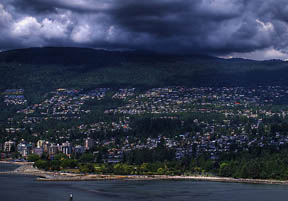While the B.C. real estate market is sizzling as buyers from mainland China look for high-end homes often located near good schools, this category of offshore buyers is causing some legal glitches.
Notary public Alexander Ning, who deals with mainly mainland Chinese clients, says the major problem that he sees is getting documents processed. He notes that while both spouses often need to sign registered documents, when he asks them to attend at his Richmond, B.C., office, he’s told that the husband has gone back to China. “The wife tells me he will not be back for six months,” Ning says.
It then becomes a challenge to find a way of signing the document overseas in a way that’s acceptable to the Land Title and Survey Authority of British Columbia offices. “It is very difficult,” he says, noting that in China, notaries are mainly government officials who have their own way of signing documents. Unfortunately, their seal or attaching their own documents to the original one isn’t acceptable, according to Ning.
While the documents can be witnessed at the Canadian embassy, there are only a few places in China with a diplomatic outpost. Also, only a few Canadian firms have set up law offices in China. As a result, options are limited and there’s not much wiggle room when the bank approves a mortgage and requests the draft the document only “two weeks before closing,” says Ning.
Another difficult situation occurs when he gets instruction from three different banks to draft the same documents on behalf of a client. “I call Mr. M. and say, ‘I’m confused as to which bank you are using,’” says Ning. “He tells me he has now decided not to use any. He’s going to pay cash.” That situation can compound itself when the client then faces restrictions on cash that can be transferred legally out of China.
The problems aren’t insurmountable. They just add to the normal work required, says Ning, who maintains that as much as two-thirds of the B.C. residential sales market is now served by notary publics. Mainland Chinese “are the fast growing part of the market,” he notes.

West Vancouver realtor Susie Goodall specializes in selling to offshore Chinese clients and lectures on dealing with them. One problem is the failure to get a deposit cheque in a hot market when offers are being presented to a client.
“If you are dealing with a Chinese realtor or buyer and there is a subject free offer on a property, it’s a done deal and you want to make sure that there is a deposit cheque in hand or they can simply walk away,” she says. In the meantime, buyers can change their mind and leave the property vendor dangling. “The vendor could sue,” Goodall says.
In a hot market, buyers also want to tie the property up or make multiple offers. The focus is on finding the properties that hold value and are close to good schools and ethnic communities. In B.C., areas favoured by buyers from mainland China are Vancouver’s west side, West Vancouver, North Vancouver, Burnaby, Coquitlam, White Rock, and Richmond.
Lawyer Florence Wong, who also hosts a talk show on a Chinese language station and does real estate transactions for clients, notes the story of one person who’s selling after 18 months and is realizing a 30-per-cent increase in price. “I have another client who is negotiating on property he has had for 15 months and he will make a handsome profit as well,” she says.
But, the question that cautious people are asking is how long before the bubble will burst?
Currently, Ning is seeing houses on Vancouver’s west side on modest lots with no view selling for more than $3 million. Speculators are even repeatedly flipping to one another. “It is scary,” says Ning, who maintains that “history always repeats itself” and a crash will come.

 West Vancouver realtor Susie Goodall specializes in selling to offshore Chinese clients and lectures on dealing with them. One problem is the failure to get a deposit cheque in a hot market when offers are being presented to a client.
West Vancouver realtor Susie Goodall specializes in selling to offshore Chinese clients and lectures on dealing with them. One problem is the failure to get a deposit cheque in a hot market when offers are being presented to a client.